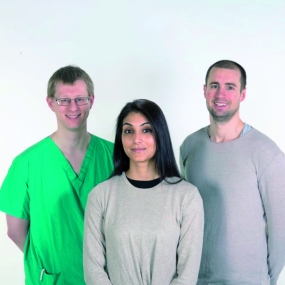The trainee role in achieving ACSA
More than half of departments across the UK are working towards ACSA. From previous articles, it is clear that collective will is required to engage in a process that can take several years of preparation. This article differs from others as we look specifically at how we, as a group of higher trainees, were able to help and influence Nottingham University Hospitals NHS Trust (NUH) in their desire to gain accreditation.
What were our roles?
Initially we focused on the trainee areas, conducting surveys on supervision, ease of access to consultant advice, and support in solo training lists. We looked at rest facilities for on-calls and at how well the on-call bleep and phone systems worked. The availability of Wi-Fi, specially in a Victorian era hospital building, was shown to have implications with regard to consultant–trainee communication in remote sites. This led to the building of a business case for IT services to improve coverage within the trust. As the process evolved, we analysed complex patient pathways, including those for patients with obstructive sleep apnoea and for the follow-up of patients with complex postoperative needs. NUH is a dual-site tertiary
major trauma centre. Collecting demographic data on the number of cases anaesthetists are involved with and on staffing levels was an incredibly complicated task that gave us all a greater understanding of the medical-data-recording systems used within our trust.
Trainees are the continuum throughout 24-hour anaesthetic care, and are involved in the majority, if not all, of the areas where anaesthetic services are required.
What were our roles?
Initially we focused on the trainee areas, conducting surveys on supervision, ease of access to consultant advice, and support in solo training lists. We looked at rest facilities for on-calls and at how well the on-call bleep and phone systems worked. The availability of Wi-Fi, specially in a Victorian era hospital building, was shown to have implications with regard to consultant–trainee communication in remote sites. This led to the building of a business case for IT services to improve coverage within the trust. As the process evolved, we analysed complex patient pathways, including those for patients with obstructive sleep apnoea and for the follow-up of patients with complex postoperative needs. NUH is a dual-site tertiary major trauma centre. Collecting demographic data on the number of cases anaesthetists are involved with and on staffing levels was an incredibly complicated task that gave us all a greater understanding of the medical-data-recording systems used within our trust.
What did we learn?
Having been involved with the process for a year, our team took tremendous pride in presenting our department to the visiting ACSA review team. Being a large and dual site tertiary centre, it was impossible to be aware of all the incredible projects, services and processes that are in place to improve patient care within our trust; ACSA has allowed us to bring all of these to the forefront and showcase them. The process provided reassurance to the department in terms of the service we currently provide, but also gave us a determination to act on standards that still require attention. As higher trainees, we are involved in the majority of the clinical activities that take place in our trust. However, from a departmental perspective, there were still many things happening that we were not aware of. It was eye opening and interesting to meet key people in the management structure who had previously just been names at inductions. Building on these relationships played an important role in implementing change.
Summary
Being involved in our department’s ACSA bid as trainee representatives has been hard work, yet it was an enjoyable and extremely productive task. The process has increased our understanding of the management structure of our department, and helped us build the skills to enable us to become effective and productive future consultant colleagues. We would encourage other trainees to get involved in their departments’ bids; it may surprise you how much you will learn and get out of it! All that remains is for us to complete the last few remaining standards, and then hopefully achieve accreditation and receive our plaque!

ST7 Anaesthetic Trainees, Nottingham University Hospitals NHS Trust.
